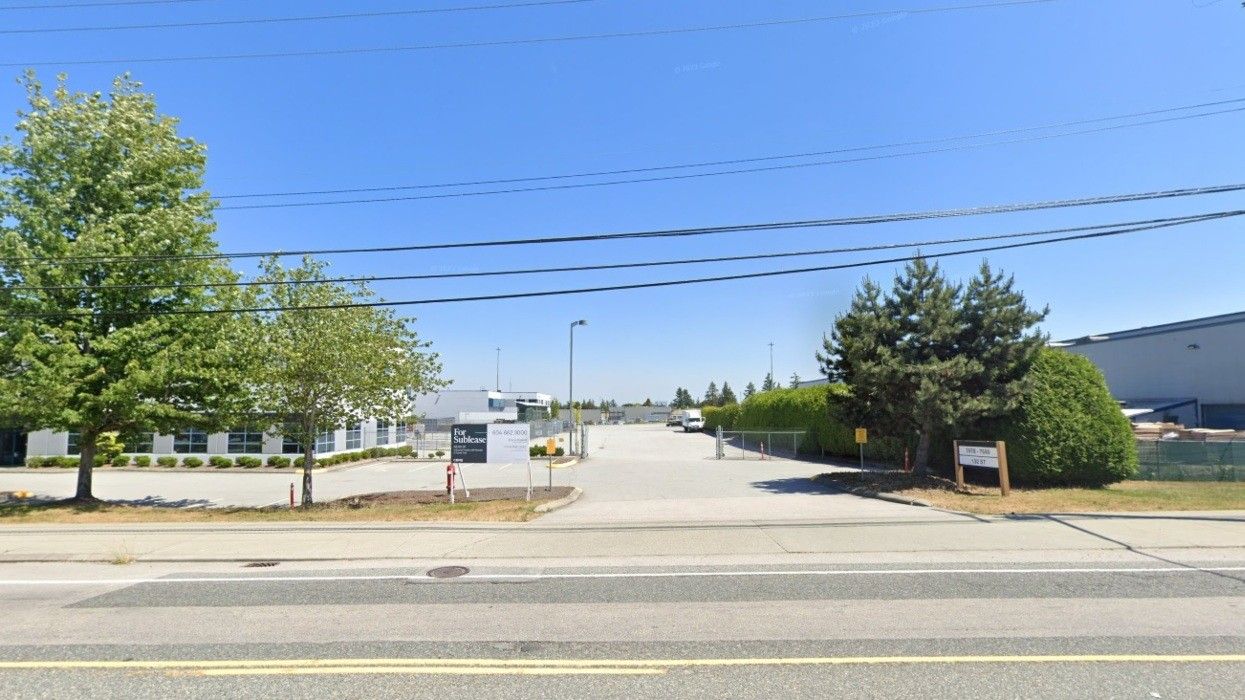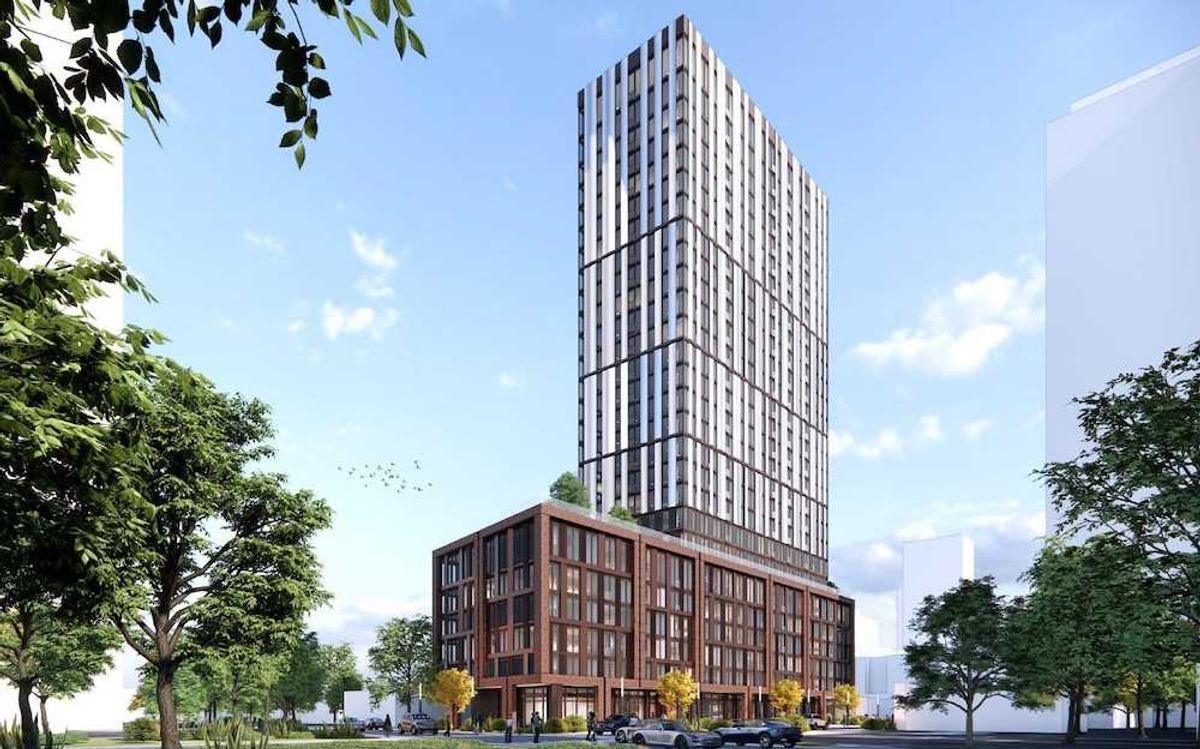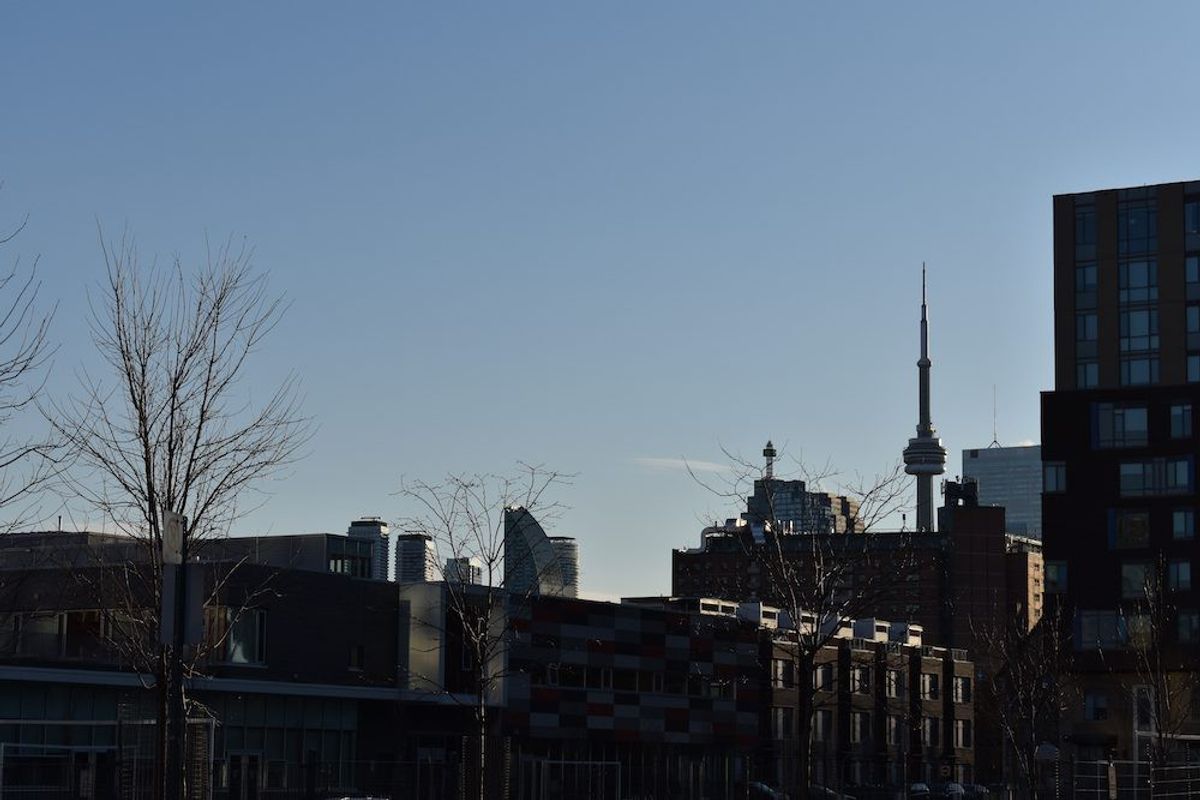[Editor's Note: This article has been updated to correct an error regarding the sale price, which was $85.6 million, not $86.5 million.]
Regional public transportation provider TransLink made a significant real estate purchase this summer, STOREYS has learned.
That purchase consisted of two properties. The first is 13221 76th Avenue, a 4.94-acre property occupied by an industrial building that was constructed in 1961. The second is 7678 132nd Street, a 4.99-acre property occupied by an industrial building that was constructed in 1997.
TransLink acquired the two properties from Belkorp Properties, founded by Morris Belkin, for a total of $85.6 million. With the two properties totalling to just under 10 acres, the price TransLink paid amounts to just under $8.56 million per acre. BC Assessment values the two properties at $34,237,000 and $37,427,000, for a total valuation, dated back to July 1, 2023, of $71,664,000.
The two adjacent properties sit at the northeast corner of 76th Avenue and 132nd Street, about two blocks west of King George Boulevard in Surrey.
Critically, the properties are located adjacent to the Coast Mountain Bus Company's Surrey Transit Centre at 7740 132nd Street. The Coast Mountain Bus Company is a wholly-owned subsidiary of TransLink.
"TransLink has acquired properties at 7678 132nd Street and 13221 76th Avenue in Surrey, to enable long-term operational expansion of the Surrey Transit Centre," a TransLink spokesperson confirmed to STOREYS.
TransLink's transit centres typically serve as a bus yard with fueling stations and a communications centre that controls and dispatches buses.
According to Google Maps, the 13221 76th Avenue is currently occupied by Mako Wood Furniture Inc., a furniture manufacturer, while 7678 132nd Street is currently occupied by Access Flow Products, a piping products producer that was formed after NCI Canada and ValvSource merged in September 2023.
The transaction occurred in August, less than two months after TransLink unveiled a series of cost-costing and revenue-generating initiatives totalling to approximately $90 million per year — nearly what TransLink paid for the two properties. The initiatives are "aimed at urgently addressing its growing funding gap," the company said.
"While the financial benefits are significant, they will only partially address an impending average annual funding gap of more than $600 million that begins in 2026 after provincial relief funding runs out," said TransLink in a press release.
Those cost-cutting and revenue-generation measures included eliminating 35 corporate roles, reducing research grants, and increasing fare-evasion enforcement, among many other things. In July, TransLink then claimed that if a new model of funding transit is not established by the end of 2025, it would be forced to cut half of its bus services, reduce SkyTrain and SeaBus services, and potentially eliminate the West Coast Express.
"These cuts would be devastating to the region, and we're doing everything we can to stop them from happening," said TransLink CEO Kevin Quinn. "Unfortunately, this is a window into our reality if a solution to our outdated funding model is not implemented. We need all levels of government to come together to protect and expand transit service to meet the needs of Metro Vancouver's growing population."
The acquisition of the two Surrey properties and the expansion of the Surrey Transit Centre seems to run counter to that, but evidently TransLink believed the benefits outweighed the negatives.
- City Of Richmond Pays $68M For Industrial Property Valued At $32M ›
- City Of Vancouver Acquires Warehouse For $9.5M To Convert Into Social Housing ›
- Slate-Owned Metrotown Place Sold To City Of Burnaby Via Receivership ›
- Manulife Sells Two Properties In Coquitlam To Belkorp For $71.3M ›
- BC Government Pays Jim Pattison $52M For Richmond Property ›
- TransLink Buys 5-Acre Site Near Vancouver Transit Centre For $63M ›




















